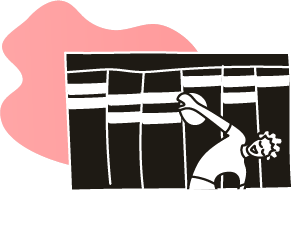Title of the resource
Title of the resource in english
Publisher
Core Knowledge UK
The Core Knowledge Foundation is a nonprofit organization from Charlottesville, Virginia, which was founded in 1986 by E. D. Hirsch, Jr. The foundation offers open access curricula to schools, teachers, parents.
https://www.coreknowledge.org/about-us/. Accessed September 30, 2020.
Original language
Target and Age Group
Primary school (7-8 year olds), year 3 in the UK education system, part of the national curriculum for history.
Link to resource
The link is to the whole ancient Greece Module, 5 lesson plans.
http://www.coreknowledge.org.uk/resources/Resource%20Pack-%20Year%203-%20Ancient%20Greece-%20Unit%201.pdf
Accessed September 30, 2020
Author of the Entry:
Ayelet Peer, Bar- Ilan University, ayelet.peer@biu.ac.il
Peer-reviewer of the Entry:
Lisa Maurice, Bar-Ilan University, lisa.maurice@biu.ac.il
Second Peer-reviewer of the Entry:
Daniel A. Nkemleke, University of Yaoundé 1, nkemlekedan@yahoo.com
Core Knowledge
Core Knowledge UK
The Core Knowledge Foundation is a nonprofit organization from Charlottesville, Virginia, which was founded in 1986 by E. D. Hirsch, Jr. The foundation offers open access curricula to schools, teachers, parents.
https://www.coreknowledge.org/about-us/
Accessed September 30, 2020.
Contents & Purpose
The aim of this lesson plan is to explain to the students about Athenian democracy and its institutions.
The lesson includes a reenactment of Athenian elections and explains the terms pnyx, boule, ecclesia, tyranny, democracy. The lesson also refers to videos on Athens and the Parthenon.
This lesson offers group activity in which the class acts as Athenian citizens who participate in the democracy. It is specifically noted that since women and slaves were not citizens, it is suggested that the teacher makes the entire class free (male) citizens so all the students can take part in the activity. The teacher divides the class into 3 boule and each announces a new law (sports practice, going to a temple, a feast). At the end, as a humorous closure to the lesson, the students participate in the ostracismus process and decide whether they should ostracize their teacher for tyrannical behavior.
Further comments
The role play allows the students to participate and experience Athenian direct democracy, yet not in full. The misrepresentation of ther groups in Athenian society is handled as follows: “Decide who are going to be women and slaves and ask them to sit back down at their desk. Or, not to hurt anyone’s feelings, establish that the whole class is made up of free men (citizens)—so none are women or slaves.” Hence the reenactment enables all the students to participate in the activity. The teacher does not comment on this alienation of women but perhaps this would be mention while studying the basics of the direct democracy.
Athens is represented just as the birth place of democracy, yet it had other values, such as philosophy, tragedies etc., yet they are not specified here. There is no stark comparison with Sparta, since the lesson on Sparta discusses its militarism and less its governmental method. Furthermore, the problems of Athenian democracy are not specified in the lesson plan so perhaps they are left to the discretion of the teachers who use this resource. There were problems with direct democracy of which even the Athenians were aware.


